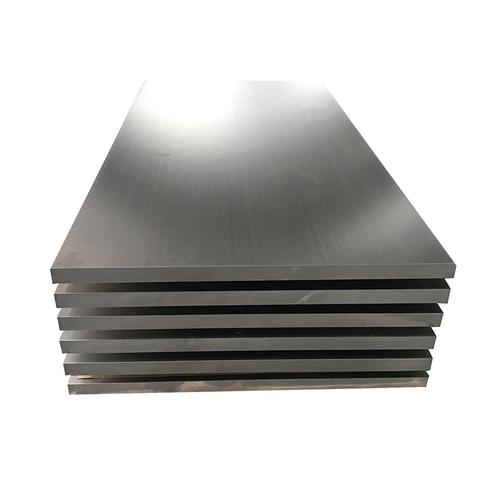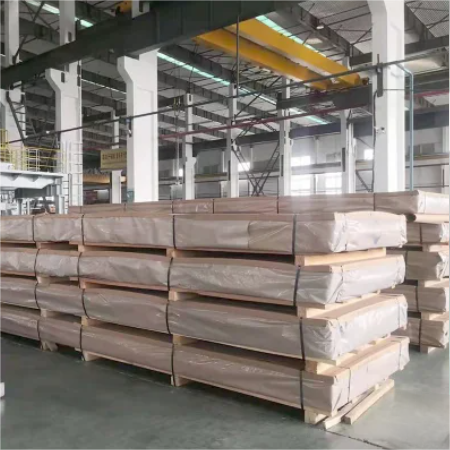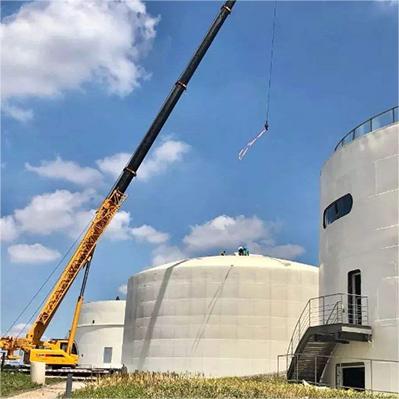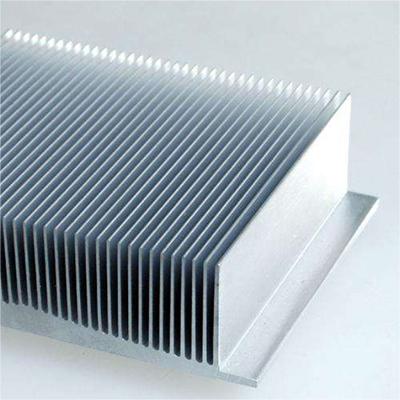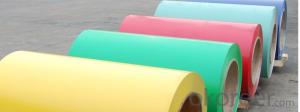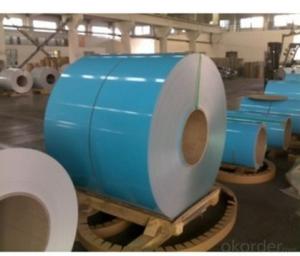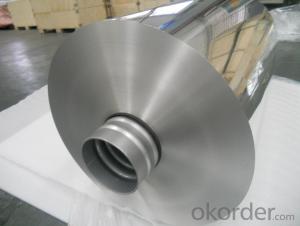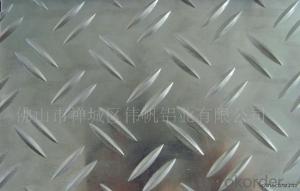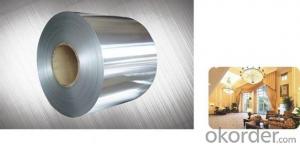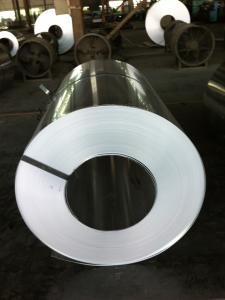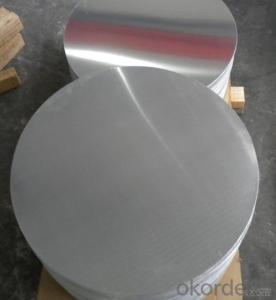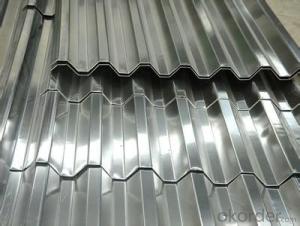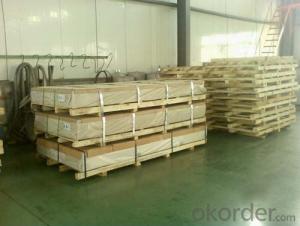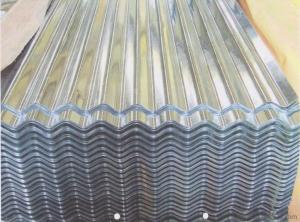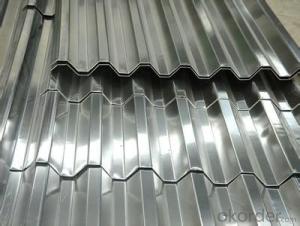Top Quality Deep Corrugated Aluminum Sheets & Plates for Building Materials
- Loading Port:
- China main port
- Payment Terms:
- TT or LC
- Min Order Qty:
- 3 m.t.
- Supply Capability:
- 700000 m.t./month
OKorder Service Pledge
OKorder Financial Service
You Might Also Like
Aluminium plates are flat sheets made from aluminium, commonly used in various industries such as construction, automotive, aerospace, and manufacturing. They are valued for their lightweight nature, corrosion resistance, and versatility in applications ranging from structural components to decorative finishes.
Advantages:
Lightweight and easy to handle, facilitating transportation and installation.
Excellent corrosion resistance, suitable for outdoor and marine environments.
High strength-to-weight ratio, providing structural integrity while reducing overall weight.
Recyclable material, contributing to sustainable practices and reducing environmental impact.
Versatility in applications, from structural support to decorative purposes, due to its formability and aesthetic appeal.
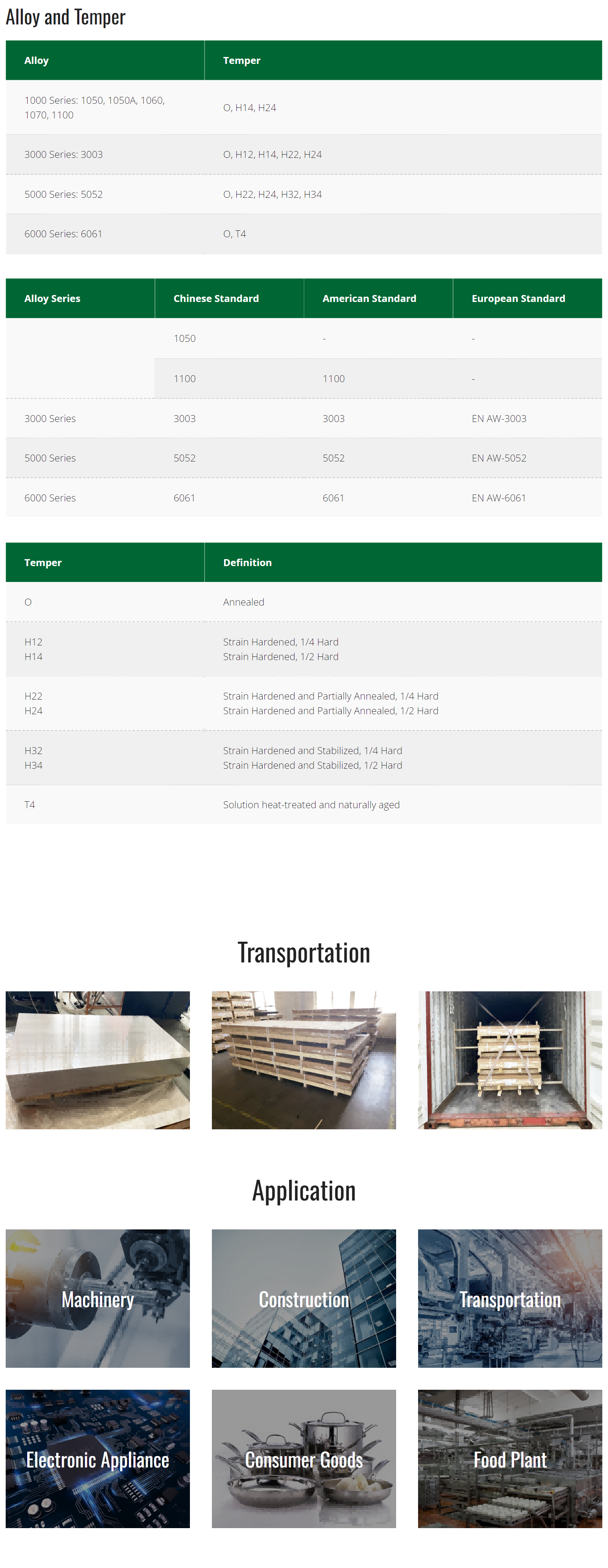
- Q: I am thinking about getting a MacBook Aluminum or a MacBook white. The Aluminum is 2.0 GhZ and the MacBook White is 2.16 GhZ. which should i get? also i am really wondering if you can upgrade the processors in both MacBooks..... Please give me link if you can. THANKS!!
- If okorder /... I'm not sure about the processor's. I dont use Mac that often!
- Q: Explain the distinctions between aluminum sheets and aluminum foil in terms of thickness, uses, and properties.
- <p>Aluminum sheets and aluminum foil are both made from aluminum but differ in thickness and applications. Aluminum sheets are thicker and more rigid, typically used for construction, manufacturing, and as a packaging material. They offer better strength and durability. Aluminum foil, on the other hand, is very thin and flexible, commonly used for food packaging, cooking, and insulation. It's lightweight and has excellent heat and light reflection properties. Aluminum sheets are often anodized or coated for additional properties, while foil is valued for its purity and malleability.</p>
- Q: Can the aluminum sheets be used for manufacturing electronic heat sinks?
- Yes, aluminum sheets can be used for manufacturing electronic heat sinks due to their excellent thermal conductivity and lightweight properties, making them effective in dissipating heat from electronic components.
- Q: Are aluminum sheets suitable for hydraulic applications?
- Yes, aluminum sheets are suitable for hydraulic applications. Aluminum is known for its excellent strength-to-weight ratio, corrosion resistance, and high thermal conductivity, making it a suitable material for hydraulic systems. It is commonly used in the construction of hydraulic tanks, cylinders, and other components due to its durability and ability to withstand high pressure and fluid flow.
- Q: Can aluminum sheets be embossed or textured?
- Yes, aluminum sheets can be embossed or textured. The process of embossing or texturing aluminum sheets involves creating patterns or designs on the surface by pressing or rolling the sheet with specialized machinery. This can be done to enhance the aesthetic appearance of the sheet or to improve its functionality, such as adding grip or increasing strength. Embossed or textured aluminum sheets are commonly used in various industries, including automotive, interior design, and packaging.
- Q: Are the aluminum sheets suitable for manufacturing sporting equipment?
- Yes, aluminum sheets are suitable for manufacturing sporting equipment. Aluminum is a lightweight and durable material that offers numerous advantages for the production of sporting equipment. Its inherent strength-to-weight ratio makes it ideal for applications that require strength while keeping the overall weight down. Additionally, aluminum is highly corrosion-resistant, which is crucial for sporting equipment that is exposed to various weather conditions. Furthermore, aluminum can be easily formed into different shapes and sizes, allowing manufacturers to create customized equipment for different sports. Overall, the use of aluminum sheets in the manufacturing of sporting equipment ensures the production of high-quality, lightweight, and durable products that enhance performance and durability.
- Q: Can aluminum sheets be used for chemical distillation columns?
- Yes, aluminum sheets can be used for chemical distillation columns, particularly for low temperature and non-corrosive processes. However, it is important to note that aluminum may not be suitable for high temperature or corrosive applications, as it can react with certain chemicals and corrode. In such cases, alternative materials like stainless steel or glass may be more appropriate.
- Q: What are the different methods of surface cleaning for adhesive bonding of aluminum sheet?
- There are multiple techniques available for surface cleaning when it comes to adhesive bonding of aluminum sheet. These techniques comprise mechanical cleaning, chemical cleaning, and plasma cleaning. 1. In the case of mechanical cleaning, the objective is to physically eliminate any impurities or debris from the aluminum sheet's surface. This can be accomplished through various means such as sanding, grinding, or scrubbing with abrasive materials. Although mechanical cleaning effectively gets rid of loose particles and surface imperfections, it may not be able to eliminate all types of contaminants. 2. Chemical cleaning, on the other hand, involves the utilization of specific cleaning agents or solvents to eliminate impurities from the aluminum surface. These cleaning agents have the ability to dissolve or dislodge dirt, grease, oil, or other organic substances. To ensure thorough surface preparation, chemical cleaning is often combined with mechanical cleaning. It is crucial to select a cleaning agent that is compatible with both the adhesive and the aluminum sheet to avoid any adverse reactions. 3. Plasma cleaning, a more advanced technique, employs ionized gases to clean and activate the surface of the aluminum sheet. The plasma generates reactive species that can break down and eliminate contaminants, while also creating active sites for improved adhesion. Plasma cleaning is highly effective in removing organic and inorganic impurities, as well as oxide layers that might impede bonding. Each method possesses its own strengths and limitations, and the choice of surface cleaning technique relies on the specific requirements of the adhesive bonding process. Thorough evaluation of the surface condition and identification of the type of contaminants present are crucial in determining the most suitable cleaning method. Additionally, proper adherence to surface preparation techniques is vital to ensure successful adhesive bonding of aluminum sheet.
- Q: Are aluminum sheets suitable for structural applications?
- Aluminum sheets have great potential for use in structural applications. Being both lightweight and strong, aluminum is an excellent choice for various structural purposes. Its high strength-to-weight ratio allows for significant strength while keeping the overall weight of the structure low. This quality is particularly advantageous in industries like aerospace, automotive, and marine, where weight plays a crucial role. Furthermore, aluminum sheets possess excellent resistance to corrosion, making them suitable for structures exposed to harsh environmental conditions or moisture. Their durability and good thermal and electrical conductivity are additional advantages. These properties make aluminum sheets suitable for a wide range of structural applications, including building facades, roofing, curtain walls, bridges, shipbuilding, and electrical enclosures. Moreover, aluminum sheets are highly workable, enabling easy cutting, forming, and welding. This flexibility in fabrication allows for the creation of complex and customized structural components. Additionally, aluminum's natural oxide layer provides a level of protection against corrosion, reducing the need for additional coatings or treatments. However, it is important to carefully consider the specific requirements and loads of each structural application before opting for aluminum sheets. While aluminum is strong, it may not be suitable for heavy-load-bearing applications where steel or other materials might be more appropriate. Proper engineering and design considerations are essential to ensure the structural integrity and safety of the application.
- Q: What is the melting point of 101 aluminum sheets?
- The melting point of 101 aluminum sheets is approximately 660 degrees Celsius or 1220 degrees Fahrenheit.
Send your message to us
Top Quality Deep Corrugated Aluminum Sheets & Plates for Building Materials
- Loading Port:
- China main port
- Payment Terms:
- TT or LC
- Min Order Qty:
- 3 m.t.
- Supply Capability:
- 700000 m.t./month
OKorder Service Pledge
OKorder Financial Service
Similar products
Hot products
Hot Searches
Related keywords






